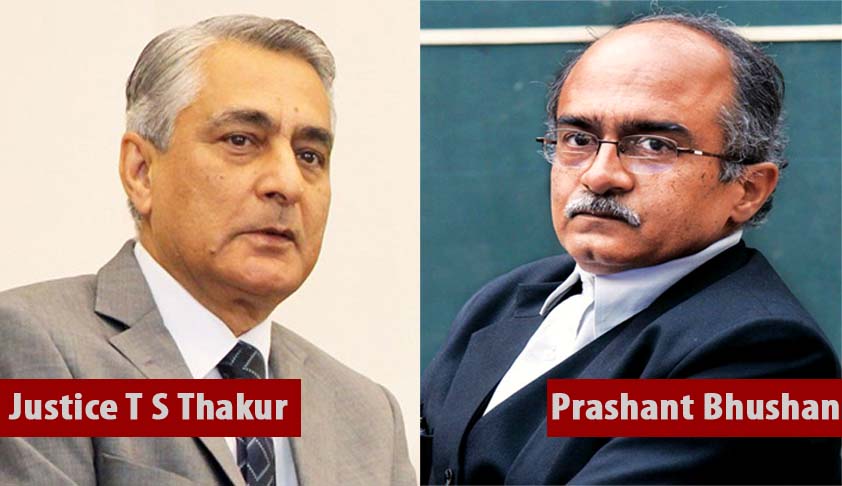CJAR demands Public Consultation on new MoP on Appointment of Judges
LIVELAW NEWS NETWORK
12 May 2016 6:04 PM IST

Next Story
12 May 2016 6:04 PM IST
In a letter to Chief Justice of India, Campaign for Judicial Accountability & Reforms (CJAR) Convenor Prashant Bhushan has applauding the judiciary's move rejecting some of the clauses in the government draft of the Memorandum of Procedure for appointment of Supreme Court and High Court judges and sought greater transparency and public consultation in preparing a new MOP for...
